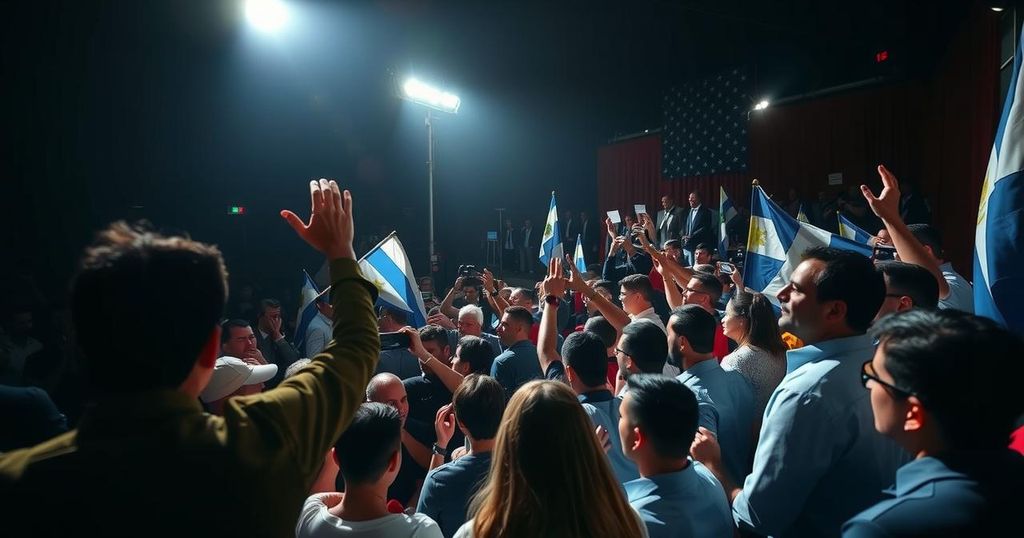Uruguay’s Presidential Race: A Competitive Runoff between Orsi and Delgado

Uruguay is approaching a close presidential runoff election between National Party’s Álvaro Delgado and Broad Front’s Yamandú Orsi after neither secured a majority in the first round. With polls showing a virtual tie, voter indecision complicates the race, influenced by concerns over crime and economic policies. Both candidates offer contrasting visions for the future, making this election a critical moment for Uruguayan democracy.
Uruguay is set for a critical presidential runoff, showcasing a tightly contested battle between frontrunner Yamandú Orsi of the Broad Front and Álvaro Delgado of the National Party. This election, which initially seemed unremarkable, has intensified with neither candidate securing a majority in the first round held on October 27, 2024. Orsi’s coalition garnered 44% of the votes while Delgado’s party received 27%, with the remaining votes from conservative allies bolstering Delgado’s position. Polls indicate a near tie, demonstrating the uncertainty among voters, many of whom remain undecided.
The lack of a dominant campaign theme and a consensus regarding crucial issues have contributed to voter indecisiveness. Analysts emphasize the unique political environment of Uruguay, where, unlike in other regions, there is no overwhelming anti-establishment sentiment influencing voters. However, both candidates are contending with rising public concern over crime, which has marred the country’s historically stable reputation.
Delgado, who campaigned on continuity and stability, seeks to uphold the agenda of President Luis Lacalle Pou, promoting business-friendly policies and potential trade agreements. Conversely, Orsi is advocating for a revitalized leftist approach, aiming to attract investment and reform social security, while reflecting on his roots as a representative of the working class. Historical parallels with former President José Mujica bolster Orsi’s appeal, suggesting a deep-seated recognition of working-class values. Ultimately, the election may define Uruguay’s path forward amid evolving socio-political challenges.
The current electoral climate in Uruguay reflects a significant shift in dynamics, with the presidential runoff becoming critically competitive following an underwhelming initial round of voting. The two frontrunners, Orsi and Delgado, belong to opposing political blocs—the Broad Front, a left-leaning coalition, and the National Party, which governs currently. This election stands as a crucial juncture for Uruguay, indicating potential changes in policy direction as both candidates grapple with pressing issues such as crime rates and economic management, amidst a backdrop of varying voter sentiments about fiscal responsibility and social policies. Furthermore, the broader implications of this election resonate within the context of regional politics in South America.
The upcoming presidential runoff in Uruguay exemplifies a pivotal moment for the nation, highlighting the competitive nature of the political landscape between Álvaro Delgado and Yamandú Orsi. Issues of crime, economic stewardship, and social reform dominate the discourse, with public sentiment reflecting a blend of apprehension and hope. As both candidates present differing visions for Uruguay’s future, the electorate’s choices will ultimately shape the country’s political trajectory in the years to come.
Original Source: apnews.com







